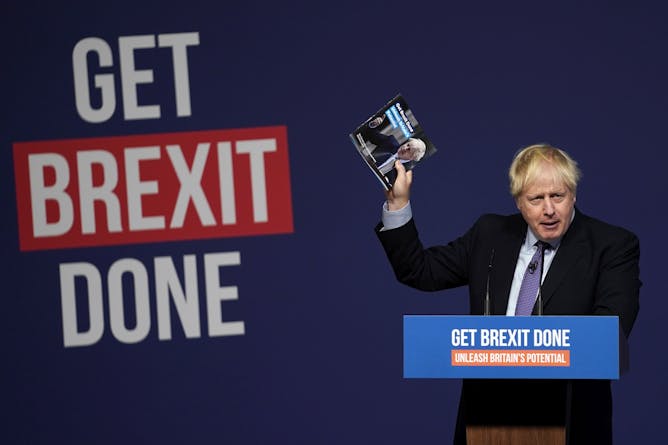|
|
|
Editor's note
|
|
Thanks to the fossil fuel divestment movement, more than US$11 trillion has been shifted away from oil companies. That’s a lot of money – almost four times the UK’s GDP. But before you add your shares to the mix, or join one of the many groups around the world pressuring institutions to do the same, you might want to read this first.
The divestment movement targets private oil companies – but these only produce 10% of the world’s oil. Without addressing the still rising global demand for fossil fuels, says energy market expert Stefan Andreasson, divesting will merely transfer power to state-run oil companies – which have higher carbon footprints, and are less committed to addressing the climate crisis. As a result, divestment may increase emissions, not lower them. But there are other ways to tackle the problem, including scrapping fossil fuel subsidies and putting a price on carbon, which would impact both private and state companies.
Staying with investment worries, we look at how giving over-55s the freedom to cash out their pensions early could be costing them billions. And if Donald Trump’s impeachment hearing has got you wondering what quid pro quo really means and where it comes from, wonder no more.
As the UK general election campaign continues, our experts take a look at Conservative sums for the NHS – do they add up? And read why the tax and spending promises of the Conservatives and Labour leave the electorate with a choice: low-tax, individualism or generous state with unknown price tag.
|
Jordan Raine
Commissioning Editor
|

|
|
Top stories
|

The fossil fuel divestment movement has support across the world.
depthandtime/flickr
Stefan Andreasson, Queen's University Belfast
Divestment doesn't affect global demand for oil, it just transfers power to state-run oil companies – which have higher carbon footprints. But there are other things we can do.
|

‘Not such a great idea.’
Oleg Govnev
David Comerford, University of Stirling
The system brought in by the government to advise retirees since the 2015 reforms may actually be making things worse.
|

Trump: there was no quid pro quo.
Jim Lo Scalzo/EPA
Anthony Grant, Edge Hill University
The history of the Latin phrase at the centre of the impeachment investigation into Donald Trump.
|

Will Oliver/EPA
Paula Lorgelly, UCL
Promises in the Tory manifesto on the NHS fall well short of what is needed.
|
Business + Economy
|
-
Jonquil Lowe, The Open University
The Conservative Party's manifesto presents a modest £2.9 billion spending increase compared to Labour’s £82.9 billion spending programme.
|
|
Education
|
-
Martin Parker, University of Bristol
The gradual withdrawal of state support for universities has been the largest, and quietest, privatisation in UK history, and most people don’t even know about it.
|
|
Arts + Culture
|
-
Devyani Sharma, Queen Mary University of London
Examining current attitudes to accents in Britain, do the same biases hold true as they did 50 years ago and what does that mean when it comes to the interview process?
|
|
Health + Medicine
|
-
Elizabeth Gagen, Aberystwyth University
A portrait of Cefn Coed Hospital, which operated in Wales between 1932-2018, provides unique insight into life at a mental hospital.
|
|
Politics + Society
|
-
Michael Price, University of Leeds; Victor Harlow, Newcastle University
This 1,000-year-old institution is not the solution to ageing Britain – here's why.
|
|
Science + Technology
|
-
Maria Seton, University of Sydney; Joanne Whittaker, University of Tasmania; Simon Williams, University of Sydney
We undertook a 28-day voyage to explore a possible lost continent in a remote part of the Coral Sea, in an area off the coast of Queensland. Here's what we found.
-
Laura Nicole Driessen, University of Manchester
Radio flare may be the result of a giant star orbiting some unusual object – a combination we have never seen before.
-
Thomas Allen, Manchester Metropolitan University
As record running times drop, what role is footwear playing?
|
|
| |
| |
| |
| |

|
| |
| |
| |
Featured events
|

|
G10, Palmer Building, Whiteknights Campus, University of Reading, Reading, West Berkshire, RG6 6UR, United Kingdom of Great Britain and Northern Ireland — University of Reading
|

|
Oxford Martin School, 34 Broad Street, Oxford, Oxfordshire, OX1 3BD, United Kingdom of Great Britain and Northern Ireland — University of Oxford
|

|
Oxford Martin School, 34 Broad Street, Oxford, Oxfordshire, OX1 3BD, United Kingdom of Great Britain and Northern Ireland — University of Oxford
|

|
Lecture Theatre One, UEA, Norwich, Norfolk, NR4 7TJ, United Kingdom of Great Britain and Northern Ireland — University of East Anglia
|
|
|
|
| |
| |
| |
| |
| |
|
|
|
|
|
|
|